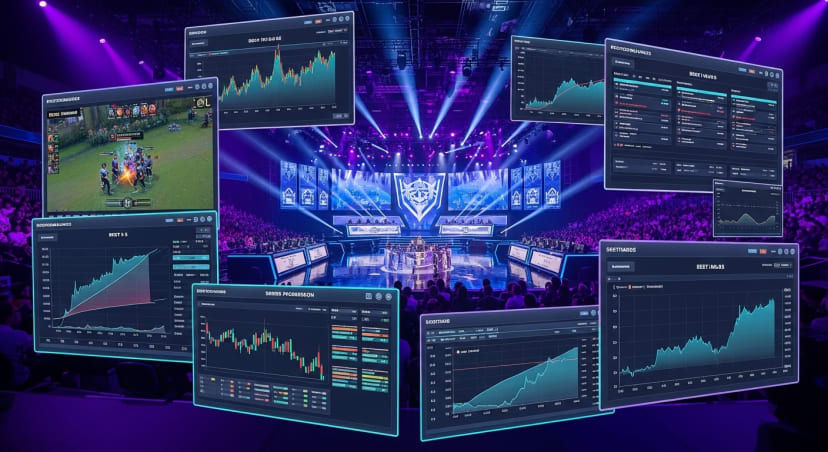India Supreme Court Pushes Ban on Disguised Betting Apps

Recommended casinos
India's Supreme Court has directed the central government to respond within two weeks to a petition demanding a nationwide ban on over 2,000 online gambling and betting platforms masquerading as esports games. The order, issued on November 4, 2025, by Justices JB Pardiwala and KV Viswanathan, targets apps that exploit regulatory ambiguities to offer real-money wagering under the guise of skill-based gaming. This intervention highlights escalating concerns over consumer protection and financial crimes in one of Asia's fastest-growing digital markets, where esports betting has surged amid lax oversight.
- Immediate enforcement directive: The court has flagged 2,000+ apps for potential shutdown, focusing on those evading the 2023 IT Rules by rebranding as "esports" platforms.
- Broader regulatory scrutiny: Petitioners urge the integration of esports betting under the Public Gambling Act, 1867, to curb addiction and money laundering associated with these operations.
- Impact on operators: Licensed platforms in India must now enhance KYC protocols, while global firms eye compliance risks in a market projected to hit $5 billion in gaming revenue by 2026.
The petition, filed by NGO Bachpan Bachao Andolan, argues that these apps—often promoted via influencers and social media—lure young users into addictive betting cycles, resulting in severe financial distress. Many platforms, registered overseas in jurisdictions such as Curacao, circumvent India's stringent foreign exchange controls under the Foreign Exchange Management Act (FEMA), channeling billions of dollars in remittances annually. The court noted preliminary evidence of apps, such as Dream11 variants and offshore clones, facilitating unregulated wagers on titles like PUBG Mobile and Free Fire, which dominate India's esports scene with over 500 million gamers.
This development unfolds against a backdrop of fragmented regulation in Asia, where esports betting volumes have tripled since 2023, per industry data from the All India Gaming Federation. Unlike the UK's Gambling Commission, which mandates age verification and integrity audits for esports odds, India's framework treats "games of skill" leniently, exempting them from gambling bans. However, the petition cites a 2024 Kerala High Court ruling classifying certain fantasy apps as gambling, urging the Supreme Court to set a precedent. For operators in regulated Asian markets, such as the Philippines (PAGCOR-licensed) or Singapore, the case signals heightened cross-border vigilance, as Indian users account for 20-30% of traffic on global platforms.
Implications extend to tournament organizers and publishers. Riot Games and Tencent, key players in the League of Legends and Valorant circuits, have partnered with integrity bodies like the ESIC to monitor betting anomalies; however, grassroots events in India remain vulnerable. The order could accelerate the rollout of a unified national gaming policy, which has been delayed since 2022, incorporating mandatory RNG audits and deposit caps—similar to Brazil's 2024 esports betting framework. Bettors, particularly in Tier-2 cities where smartphone penetration exceeds 70%, face disrupted access, potentially shifting activity to unregulated VPN-routed sites and amplifying fraud risks.
As India grapples with this, the ruling reinforces global calls for harmonized standards. The Asia-Pacific esports betting market, valued at $1.8 billion in 2025, relies on trust; unchecked, disguised platforms erode it, deterring institutional investment from Europe and Australia. ESIC's recent Street Fighter 6 integrity pact exemplifies proactive measures, but judicial muscle, such as India's, could catalyze enforcement. For stakeholders, the government's response over the next fortnight will dictate whether this curbs illicit flows or spurs innovation in compliant esports wagering.
Sources: Supreme Court of India Notice, Times Now Report








